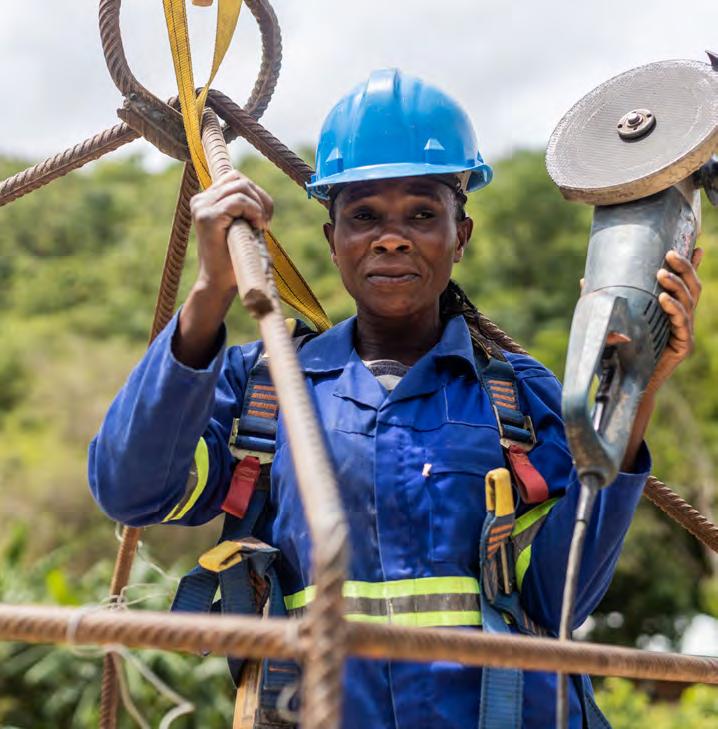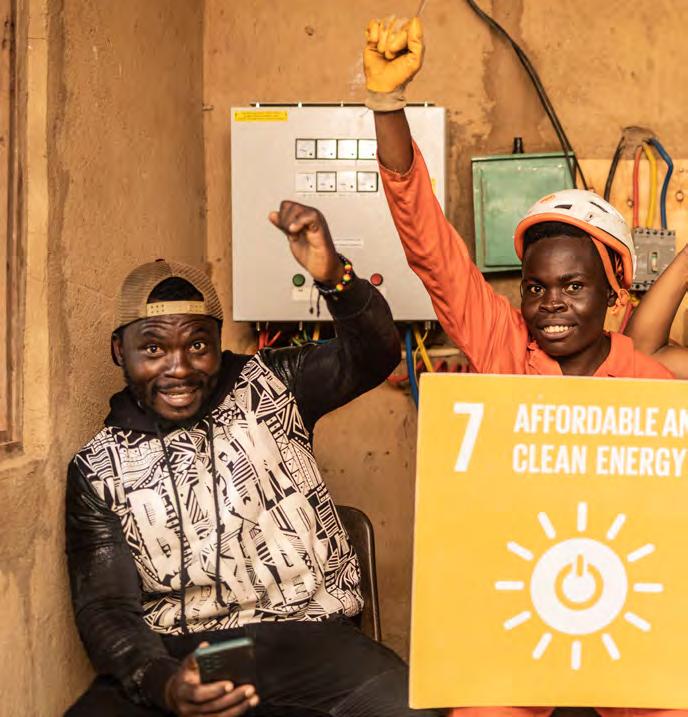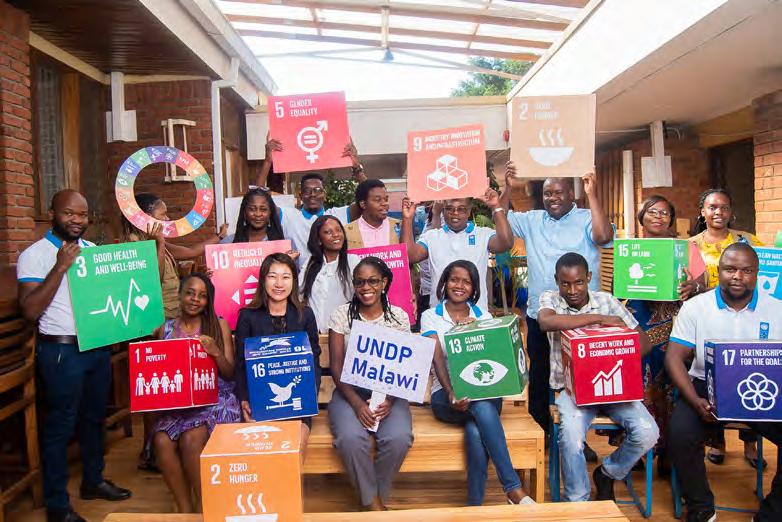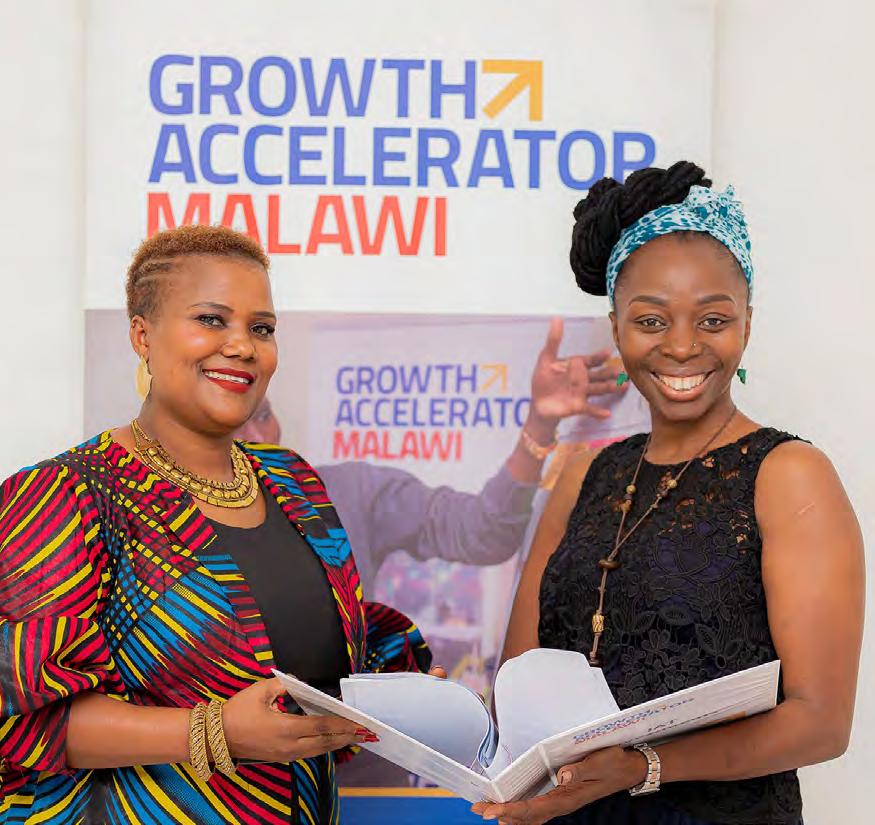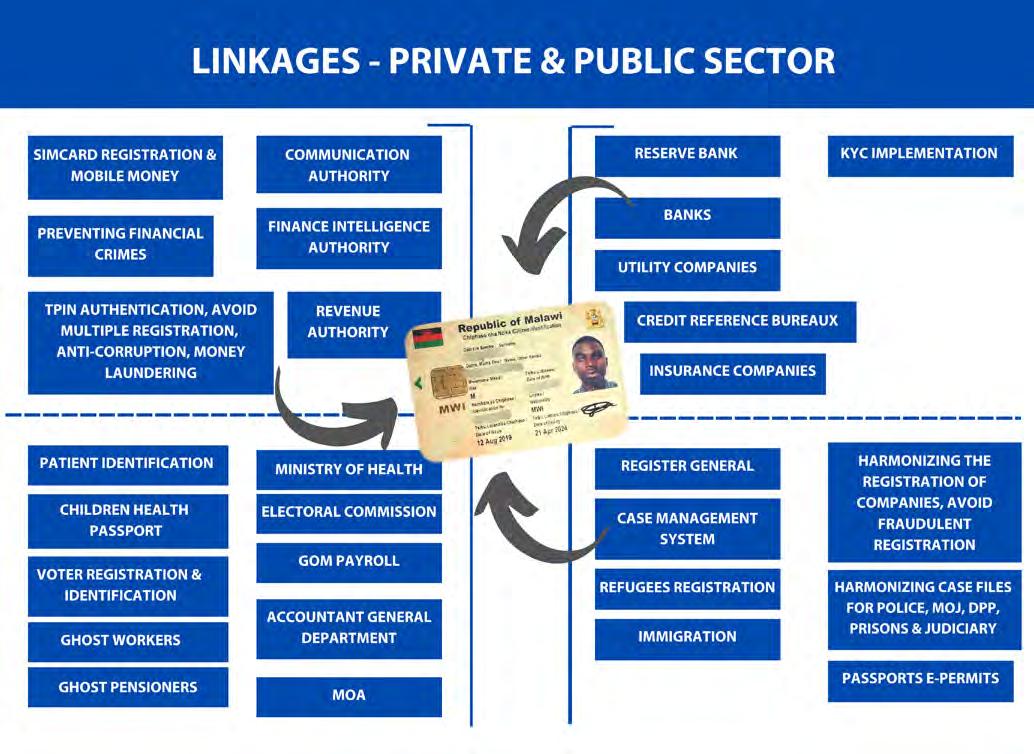
2 minute read
RESILIENCE AND SUSTAINABLE GROWTH
ENVIRONMENT AND INCREASED RESILIENCE
Malawi has experienced an increase in the frequency, intensity and magnitude over the last two decades of extreme weather events.
Advertisement
Malawi is particularly vulnerable to floods, droughts and strong winds associated with tropical cyclones. The country has experienced more than 19 major flooding events and seven droughts over the past five decades and in 2015 was affected by the worst floods in 50 years; the floods affected over 1 million people, displaced 230,000 people and killed 106 people, with another 172 people reported missing. The agriculture sector suffers the greatest losses because of climate change impacts. Most smallholder farmers in Malawi are resource poor with very limited capacity to contain shocks arising from climate change.
To help reduce the threats posed by climate change and natural disasters, UNDP Malawi continues to work alongside the Government of Malawi and other national and local structures. Our aim is to build capacity of key actors to improve weather and climate information, provide early warnings to disaster-prone communities to save lives and safeguard livelihoods and help enhance communities’ resilience through an enhanced flow of ecosystem services for livelihoods and resilient agricultural production.
In 2021, we scaled up climate adaptation and resilience to shocks of target vulnerable communities. As part of these wider interventions, The
Government of Japan, Foreign, Commonwealth and Development Office (FCDO), Green Climate Fund (GCF), Global Environment Facility (GCF),
The Peoples’ Republic of China, Government of Flanders; have been key in helping scale up investments in disaster risk reduction and recovery efforts to the threats caused by extreme weather events in the country.

HIGHLIGHTS OF KEY RESULTS



HIGHLIGHTS OF KEY RESULTS

Malawi’s economy is dependent on agriculture and therefore is highly dependent on weather, and therefore, the economy is vulnerable to climate change-related shocks. In addition, given Malawi’s high dependence on natural resources, environmental degradation is a chronic problem.
As a leader in climate change adaptation, UNDP works closely with the Government of Malawi and other partners to contribute to Malawi’s sustainable environmental management as highlighted in the MW2063.
UNDP Malawi is focusing on building the resilience of vulnerable groups to shocks by increasing their knowledge and skills to adapt and mitigate the effects of climate change.
In 2021, UNDP continued to work with community and household resilience through enhanced flow of ecosystem services for livelihoods and resilient agricultural production.
In 2021, UNDP continued to support community and household resilience through integrated catchment management, promotion of soil and water conservation and sustainable agriculture practices, and ecosystem management including reforestation and promotion of nature-based enterprises.



